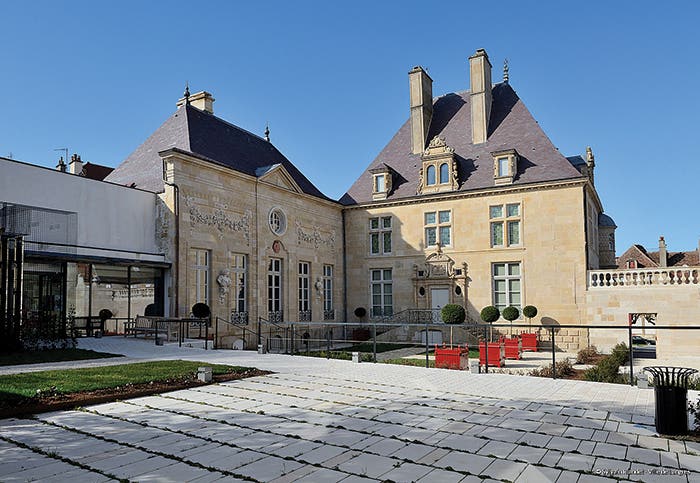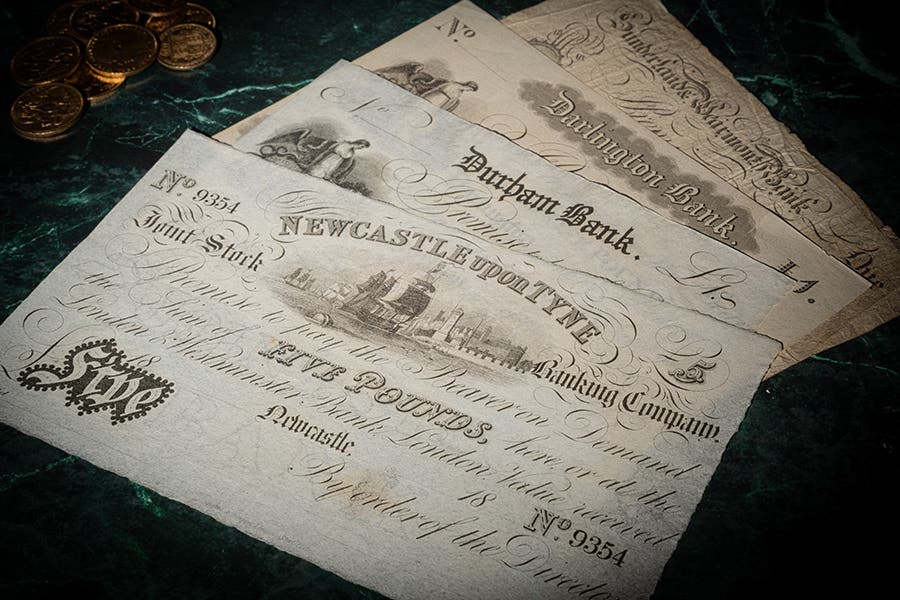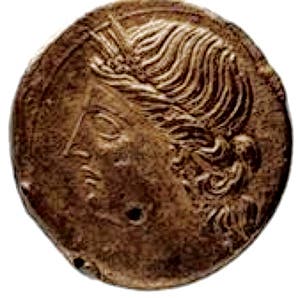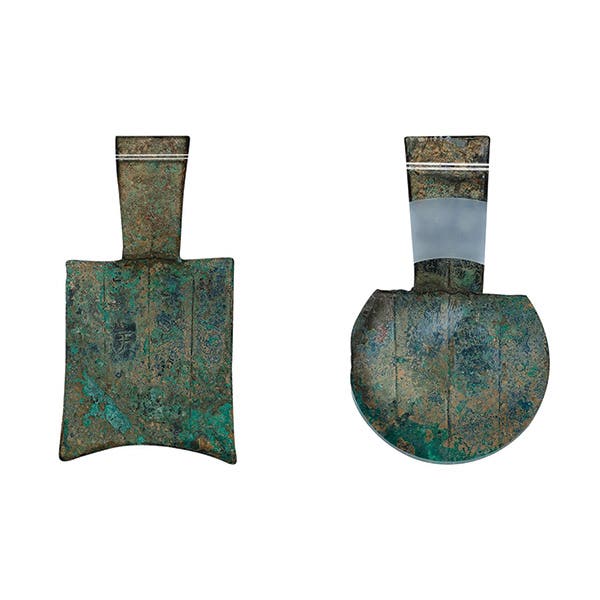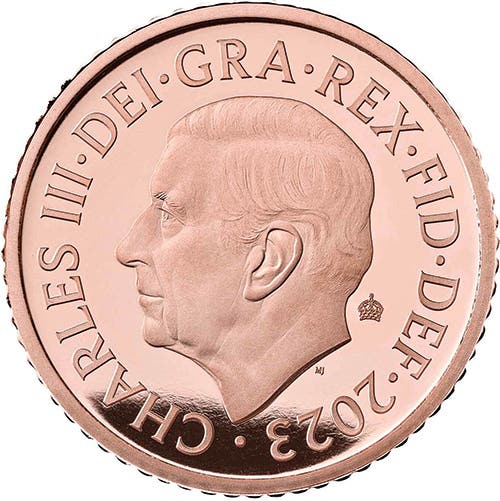The Whitwell Hoard of British Iron Age Gold Coins Discovered by Metal Detectorist in Derbyshire to be Sold at Noonans
Largest hoard of Corieltauvian gold staters ever found in Derbyshire heads to auction at Noonans, expected to bring £5,000.
A small hoard of five British Iron Age Gold Coins (staters) discovered in Whitwell, near Worksop in Derbyshire, by David McIntyre Haigh and his wife Judy Haigh is estimated to fetch in the region of £5,000 at Noonans Mayfair in a sale of British, World, and Ancient Coins & Historical Medals from Various Properties on Tuesday, September 9, 2025, at midday.
As Noonans Coin Specialist Alice Cullen explains: “This find is particularly special and unusual, being the largest hoard of Corieltauvian Staters found in Derbyshire. Only one other hoard has been found in the area to date, and it comprises two Staters, one of which is broken into fragments.”
David started metal detecting back in 2010, with Judy joining him two years later, after selling their sign manufacturing business in North Derbyshire and taking an early retirement. They invested in two Deus Mk 1 Detectors and later the Deus11, an Equinox, several probes, and a Suzuki Vitara 4x4 Jeep to enable them to access ploughed fields and farmland. They chose to investigate parts of north Nottinghamshire and the Trent Valley due to its Roman history, never expecting to find an Iron Age hoard instead.
Back in 2019, the duo unearthed five Staters of the Corieltauvi, initially believing they had found simple brass buttons. David describes it as “the find of a lifetime.” The find was promptly reported to their local Finds Liaison Officer (FLO), whereupon it was later declared treasure and acquired by the Western Park Museum in Sheffield.
As David explains: “We have spent over 10 years searching agricultural land with Saxon, Roman and Iron Age history in North Nottinghamshire. In late September 2023 at 6.00am on a damp misty morning, I returned to the field where I had originally found five superb full gold staters in 2019. This was a large sloping field a few miles from Whitwell, where I had had only a limited time in the past to detect as the field was usually seeded very soon after harvest.”
He continues: “On arriving on the field I spent the first half hour experimenting with the expert settings on my XP Deus Detector. Using an adapted deep programme, I began detecting and despite noisy static interference I began to hear some deep but very faint signals. My first find was a copper alloy single loop buckle circa 1250AD, next came up an even deeper worn 3rd century Roman radiate coin. Encouraged by these finds I persevered listening for soft deep signals through the Static. Another find came up, this time a large worn copper 1812 Nottingham workhouse penny token, similar in size to a George III cartwheel penny. By mid-morning, I decided to head back to my jeep parked at the top of the field. I had gone 30 yards when I had the faintest of signals, being very tired I was tempted to leave it, but no I thought it's worth digging, at first I lost the signal, then using my probe I located a strong signal, hands shaking I gently wiped the earth off the round disc in my hand and revealed a bright shining 2000 year old superb gold stater with a Celtic Horse and pelletal sun design. Marking the spot with a marker I trudged back to my jeep and rested for half an hour. I just couldn't believe it I'd struck lucky again, I was even too tired to do the "Gold dance" favoured by detectorists whenever they find gold. I got on the phone to my wife Judy back at home, she was amazed but disappointed she wasn't there detecting with me. Next, I telephoned the farmer to give him the good news. The rest of that afternoon went by in daze, unbelievably I found close by a further four superb gold staters of similar design. The farmer was planning to seed this field the following day, so no more detecting this year!”
Naturally, the find was reported to the FLO, whereupon it was declared treasure and offered to the Western Park Museum. Due to budget constraints, the coins were returned to the finders and are now to be offered at auction.
After splitting the money raised with the landowner, David and Judy plan to use it to visit their favourite place in the world: the Roman mosaics overlooking the harbour in Paphos, Cyprus.
The five coins, which have various decorations, including a head of Apollo, wreaths, and horses, are being sold separately and have estimates ranging from £400 to £1,200 [lots 1001-1005].
You may also like:




